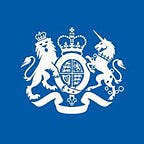What is the UN Commission on the Status of Women?
Read the Minister for Women’s opening speech at a consultation event held in preparation for the UN Commission on the Status of Women, which is taking place in New York in March 2022.
What is the Commission?
The Commission on the Status of Women is the biggest annual international event on women’s rights and gender equality and the second largest UN gathering behind the UN General Assembly.
It is the forum where global standards for gender equality and women’s rights are set.
Who leads in the UK government?
The Government Equalities Office has the overall UK Government lead at the event and co-ordinates cross-government engagement.
What is the theme this year?
The theme for the 66th Commission is achieving gender equality and the empowerment of all women and girls in the context of climate change, environmental and disaster risk reduction policies and programmes.
Hear from the UK Minister for Women speaking to women’s organisations ahead of the Commission:
“I am pleased to have taken up the role of Minister for Women in July 2021.
This will be my first UN Commission on the Status of Women and I am excited to engage bilaterally with other ministers and hear more from civil society and others through the side events.
In the year of the UK’s COP26 Presidency, we are delighted that the priority theme for the Commission on the Status of Women is climate change. Women, girls and marginalised people are disproportionately impacted by climate change — and are also critical leaders in action to tackle it. That is why the UK has prioritised the advancement of gender equality within our climate action and finance plans, including through driving implementation of the UNFCCC (UN Framework Convention on Climate Change) Gender Action Plan agreed at COP25.
At the Commission, we will continue to urge all countries and other actors to build on the momentum set by COP26. We will come forward with new commitments to deliver gender-responsive climate action, build women and girls’ resilience and empower them as leaders in the green economy.
The review theme for the Commission this year is women’s economic empowerment and this is especially relevant given the impact COVID has had on our working and wider lives. We recognise that the pandemic has exacerbated existing challenges women face in the workplace and intend to shortly launch a package with a range of initiatives to tackle this. These will build on the wider work we are doing in the UK to support women in the post-pandemic economic recovery, and align fully with my other ministerial role on work and pensions.
My own background before becoming a peer is in the voluntary sector, working to support disadvantaged people. So I know from personal experience the huge contribution that organisations like yours make day in, day out. Civil society participation is clearly essential for the Commission, and I’m pleased to hear that last year a number of civil society members represented the UK and shared their ideas at the interactive dialogue sessions.
My priorities for the upcoming year are, firstly, to help more women into work and more rewarding careers. We have a whole programme of work to support this, targeting areas where we can have the greatest impact. That work includes:
- Promoting transparency and fairness in pay
- Increasing the number of women moving from STEM studies to STEM careers
- Encouraging women returning to the workforce to take up STEM careers
- Tackling the barriers women face when it comes to setting up a high growth enterprise
- More flexible childcare for working parents; and
- In work progression for women.
I am also keen to remove barriers to women fulfilling their potential in work and home life by making childcare more accessible — a real passion of mine — as well as supporting ministerial colleagues in their important work on the Women’s Health Strategy and the Tackling Violence Against Women and Girls Strategy.
I look forward to having the opportunity to talk to you further during CSW in March.”
